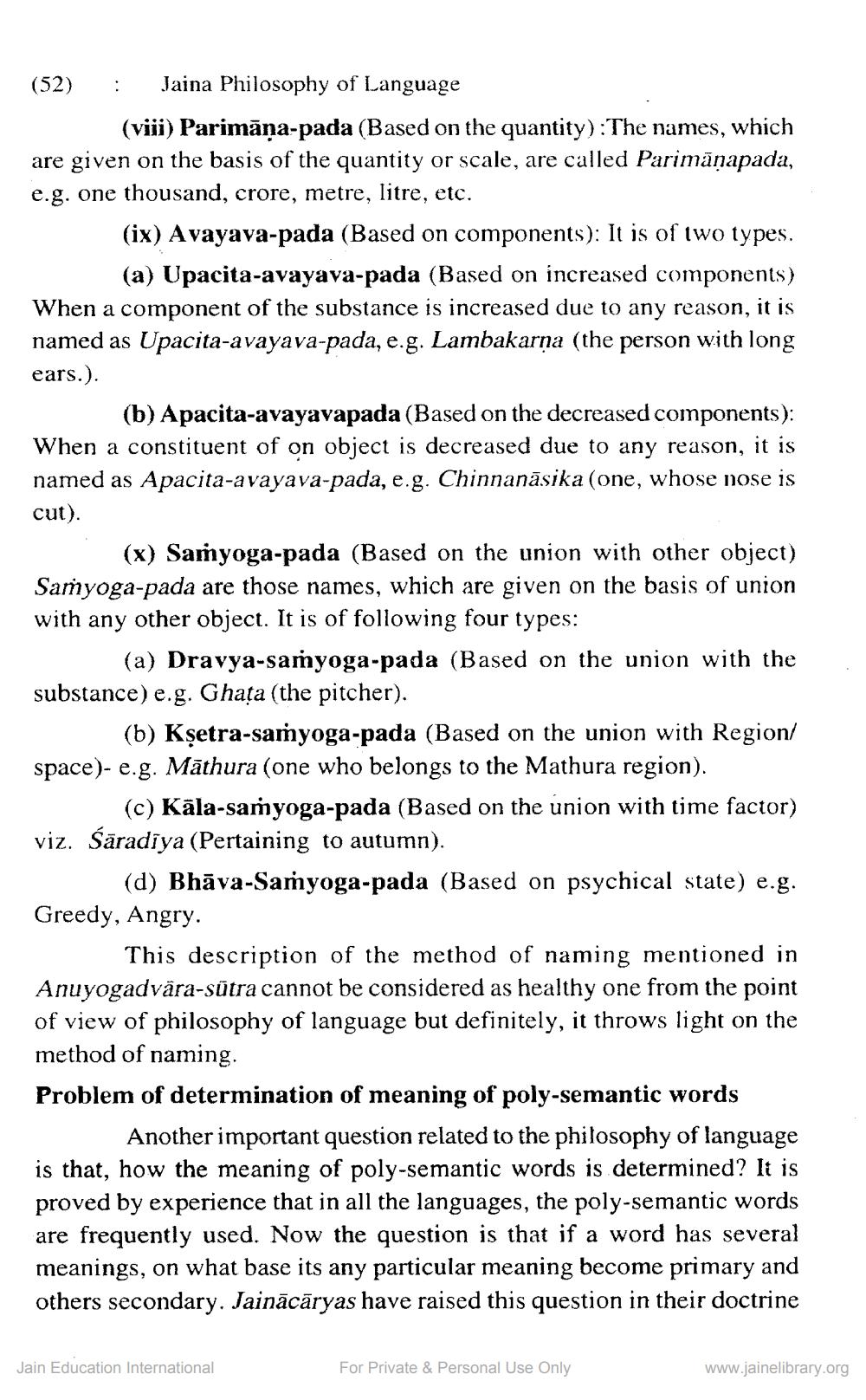________________
(52) : Jaina Philosophy of Language
(viii) Parimāņa-pada (Based on the quantity):The names, which are given on the basis of the quantity or scale, are called Parimānapada, e.g. one thousand, crore, metre, litre, etc.
(ix) Avayava-pada (Based on components): It is of two types.
(a) Upacita-avayava-pada (Based on increased components) When a component of the substance is increased due to any reason, it is named as Upacita-avayava-pada, e.g. Lambakarņa (the person with long ears.).
(b) Apacita-avayavapada (Based on the decreased components): When a constituent of on object is decreased due to any reason, it is named as Apacita-avayava-pada, e.g. Chinnanāsika (one, whose nose is cut).
(x) Samyoga-pada (Based on the union with other object) Samyoga-pada are those names, which are given on the basis of union with any other object. It is of following four types:
(a) Dravya-samyoga-pada (Based on the union with the substance) e.g. Ghața (the pitcher).
(b) Kșetra-samyoga-pada (Based on the union with Region/ space)- e.g. Māthura (one who belongs to the Mathura region).
(c) Kāla-samyoga-pada (Based on the union with time factor) viz. Sāradiya (Pertaining to autumn).
(d) Bhāva-Samyoga-pada (Based on psychical state) e.g. Greedy, Angry.
This description of the method of naming mentioned in Anuyogadvära-sūtra cannot be considered as healthy one from the point of view of philosophy of language but definitely, it throws light on the method of naming. Problem of determination of meaning of poly-semantic words
Another important question related to the philosophy of language is that, how the meaning of poly-semantic words is determined? It is proved by experience that in all the languages, the poly-semantic words are frequently used. Now the question is that if a word has several meanings, on what base its any particular meaning become primary and others secondary. Jainācāryas have raised this question in their doctrine
Jain Education International
For Private & Personal Use Only
www.jainelibrary.org




